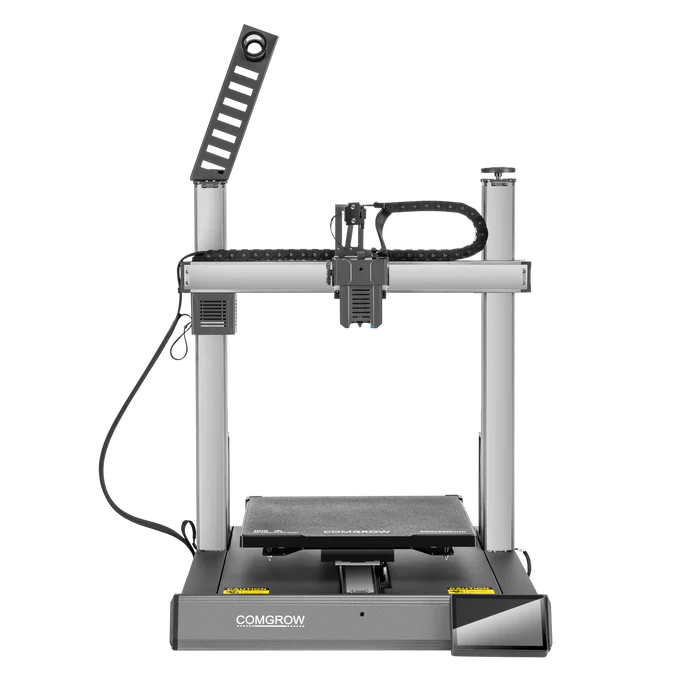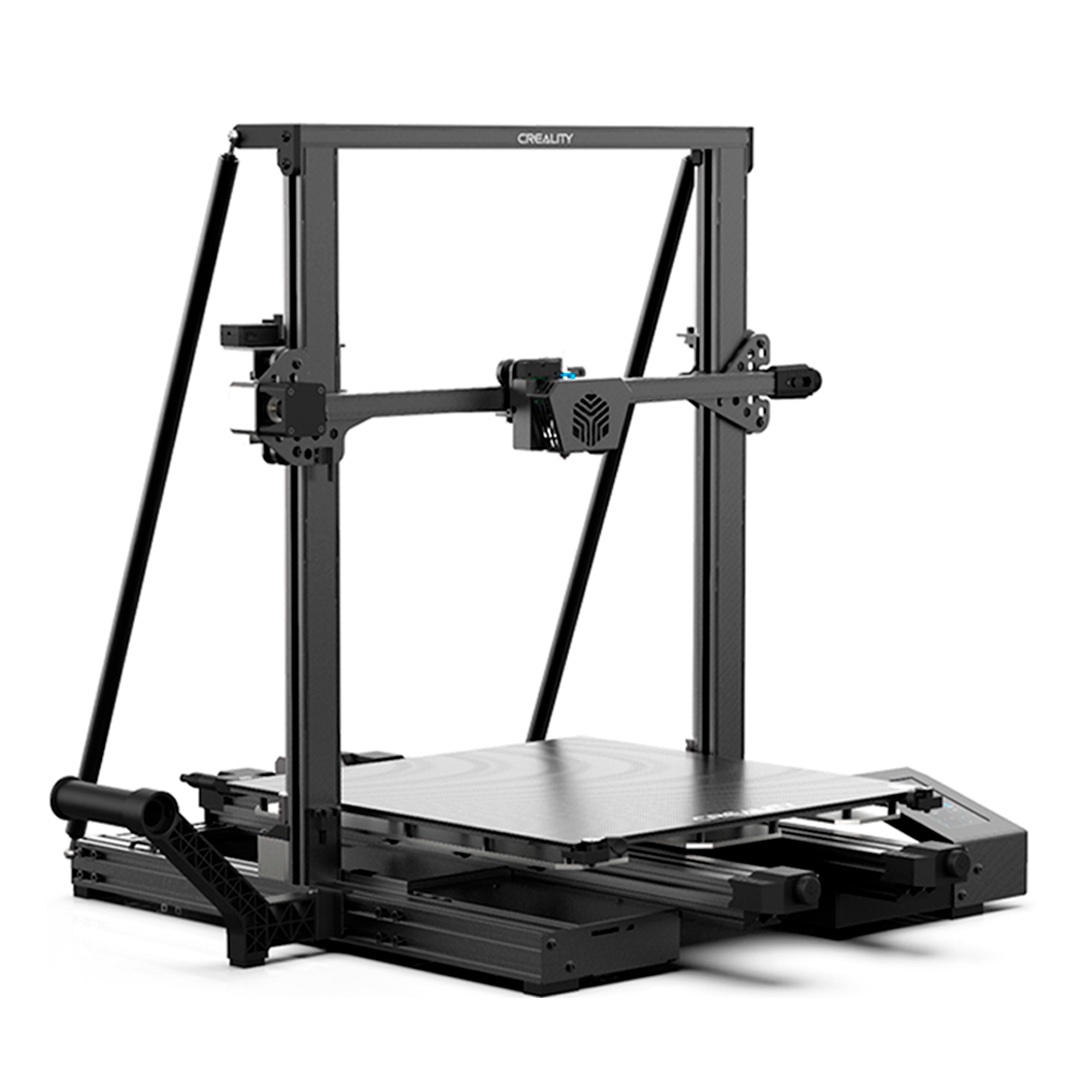Compare Comgrow T300 vs CR 6 Max
Comparison between the best 3D printers
Choose the best 3D printer at the best price. The cheapest 3D printers are here.
Buy a 3D printer here with 3D Fila.
 |
 |
|
| Model | Comgrow T300 |
CR 6 Max |
| Printing Material | Filament | Filament |
| Buy Filament for Sovol Comgrow T300 | Buy Filament forCreality 3D CR 6 Max | |
| Estimated price | $449,00 | $700,00 |
| Manufacturer | Sovol | Creality 3D |
| Release Year | 2024 | 2021 |
| Print Volume [mm] | 300x300x350 | 400x400x400 |
| Printer Size [mm] | 503x631x831 | 725x640x691 |
| Weight [kg] | 17 | 14 |
| Power Loss Recovery | YES | YES |
| Enclosed printer | NO | NO |
| Bed Leveling | Automatic | Automatic |
| Filament End Sensor | YES | YES |
| Bed type | Heated | Heated |
| Power supply system | Direct Drive | Bowden |
| Standard nozzle | 0,4 | 0,4 |
| Maximum Nozzle Temperature [°C] | 300 | 260 |
| Maximum Bed Temperature [°C] | 100 | 90 |
| Maximum printing speed [mm/s] | 600 | 100 |
| Filament holder | YES | YES |
| Camera for supervision | NO | NO |
| Recommended filaments | PLA, PETG, PET, TPU, PA, ASA, PC, PLA CE, PA-CF, PET-CF | PLA, PETG |
| Recommended slicers | Bambu Studio, Super Slicer, Cura, Prusa Slicer, Orca Slicer | Cura, Simplify, Slic3r, IdeaMaker |
| Maximum Resolution [mm] | 0,1 | 0,1 |
| Processor | 64 bit | |
| Display | Touchscreen 5'' | Display touchscreen 4,3'' |
| Power Supply | 150 W | 110/220V / 500W |
| Connectivity | USB, WiFi | SD / USB |
| Operating systems | Windows, Linux, Macbook | Windows, Mac, Linux |
| Date of registration in the system | 2024-05-10 | 2022-11-04 |
| Release date | 2024 | 2021 |
| Extra features | The Sovol Comgrow T300 printer stands out for its technological innovations and advanced features. With a print size of 300mm300mm350mm, the T300 offers true linear rails on all axes, ensuring greater stability. Its Klipper-based intelligent core and 64-bit microcomputer increase printing speed and quality through pressure advancement and input shaping. The extruder with a gear ratio of 6.5:1 allows for more precise material control, optimizing the printing of flexible materials. In addition, the T300 features a rapid filament cooling system with a high-speed fan and a circular duct piece that improves cooling efficiency. With a 4.3-inch high-refresh rate touchscreen and an 81-point automatic leveling system, the T300 simplifies the preparation and execution of 3D prints. | Crealitys CR-6 Max printer offers a large 400 x 400 x 400mm build area, perfect for larger projects without dividers. Its auto-leveling system and force sensor simplify setup. It has a 4.3-inch touchscreen and convenient features like a tool drawer and filament holder. Plus, its modular hotend, redesigned extruder, and silicon carbide-coated build plate improve print quality. |
| Support for multiple colors and materials (AMS and CFS) | NO | NO |
Notes * |
||
| Cost-benefit | 8 / 10 | 6 / 10 |
| Hardware | 3.6 / 10 | 2.4 / 10 |
| Tela | . | . |
| Print volume | 4 / 10 | 4 / 10 |
| Performance | 5 / 10 | 1 / 10 |
Conclusion |
| In comparing the Sovol Comgrow T300 and the Creality 3D CR-6 Max, several key points arise that cater to different user needs and preferences. The Comgrow T300 is priced more affordably, making it an attractive option for budget-conscious buyers. Despite its lower price, the T300 offers notable technological advancements such as true linear rails, a Klipper-based core for improved speed and print quality, and a highly efficient cooling system. Its automatic bed leveling and wide range of compatible filaments further enhance its usability. On the other hand, the CR-6 Max, while more expensive, provides a larger print volume and features like a modular hotend and a silicon carbide-coated build plate, which contribute to its print quality. However, its overall performance rating underwhelms relative to that of the T300. In conclusion, the Sovol Comgrow T300 emerges as the better option for those looking for a cost-effective 3D printer that does not compromise on features and performance. Meanwhile, the Creality 3D CR-6 Max may appeal to users specifically seeking a larger build area and additional design features, but at a higher cost and lower performance rating. Ultimately, the choice between the two will depend on the user's priorities: budget and technological performance versus size and comprehensive features. |

